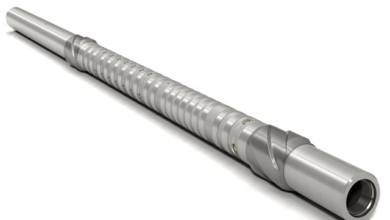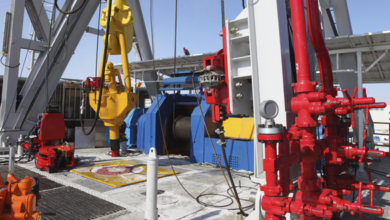Martin Culen: In future, MPD equipment on rigs will be as common as seat belts in cars
By Linda Hsieh, Managing Editor

When Martin Culen joined a Canada-based oilfield services company in 1996, he wasn’t entirely sure that this was the industry for him. He had wanted to put his mechanical engineering degree to work in a field that would allow for creativity – perhaps industrial design, he thought.
It didn’t take long, however, for him to realize just how much creativity the oilfield requires. A coiled-tubing operations manager at the company was having trouble tracking maintenance for his downhole tools because the serial numbers were getting damaged or rubbed off in the wellbore. Tasked with solving this problem, Mr Culen decided to visit a local veterinarian’s office and learn about the ID tags that are injected into pets in case they get lost. After borrowing a handful of ID tags along with the reader, he went back to the lab and ended up fashioning his own RFID solution.
“The head of research at the company thought it was a unique approach to the problem. You have to remember that, at the time, radio frequency ID tags weren’t used like they are now,” Mr Culen said. “This was also a milestone for me because it showed the kind of creative problem-solving that one can apply even in the oil patch.”
Mr Culen later was transferred to work on underbalanced drilling (UBD) projects for the company, Nowsco Well Services. For the next several years, through a series of positions at Nowsco, Tesco and Precision Energy Services, he built up significant global experience and expertise in UBD and managed pressure drilling (MPD). In 2005, he joined Blade Energy Partners as Regional Managing Director, providing support for new and ongoing projects and UBD/MPD technical analysis.
As industry’s uptake of MPD has increased sharply over the past couple of years, Mr Culen said, his role at Blade has evolved to focus much more on training and ensuring personnel competency. Now an IADC WellCAP-accredited instructor, Mr Culen also serves as Training Director for Blade.
“What’s incredibly important for any course is to remember that you are trying to get learning points across. You’re not simply making a presentation, so you have to actively engage with the people in the class and listen to their questions. If they don’t get it, you have to circle back to make sure the learning point hits home with absolutely everybody,” he said.
Particularly when teaching UBD, active engagement is paramount to the students’ success. “When you’re teaching a technique like underbalanced, which deviates almost 180 degrees from what conventional drillers are used to, you have to realize this is an absolute paradigm shift for them. ‘Thou shalt be overbalanced at all times’ – it’s the first commandment. Then we come along and say, ‘Drilling while flowing from the reservoir is OK, and here’s why.’ Communication is extremely important.”
With MPD, Mr Culen said he is most excited by the increasingly widespread recognition of the technology as a safer way to drill. “You have the ability to detect kicks a lot sooner than you do in conventional drilling. You also have MPD equipment on deck so you are able to minimize the subsequent size of the influx,” he explained.
He acknowledges that industry must continue to work on MPD equipment robustness and personnel competence, but he is confident of the key role that MPD will play in the future. “In the not-too-distant future, I can see MPD equipment becoming the same as seat belts in a car. Every rig will be outfitted with an MPD kit, and in 20 years we’ll look back and say, ‘How did we ever drill without this?’ Just like when you get in a car today, you can’t imagine not putting your seat belt on.”
As Chairman of the IADC UBO/MPD Committee, Mr Culen is leading the group to develop operating guidelines for MPD. Guidelines for MPD with a surface BOP stack is completed and under review with API, and the committee is now drafting guidelines for mud cap drilling with a subsea BOP stack. “We’re seeing the industry taking to mud cap drilling in a big way, so this project aims to address that and provide guidance.”
Mr Culen is also leading a task group to rewrite API Spec 16RCD, a document that originally came out of the IADC committee, as well. The updated version is expected to be out by Q3 this year. “It’s great to get these big thinkers, big minds from these various companies – whether they’re operators, contractors or service companies – and you put them all in a room and try to figure something out.”
Click here for a recent video interview with Martin Culen.



